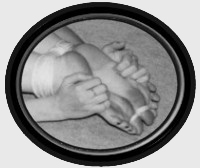-
The TMF is sponsored by Clips4sale - By supporting them, you're supporting us. -
>>> If you cannot get into your account email me at [email protected] <<<
Don't forget to include your username
You are using an out of date browser. It may not display this or other websites correctly.
You should upgrade or use an alternative browser.
You should upgrade or use an alternative browser.
why was a civil war called a civil war?
- Thread starter isabeau
- Start date
It's cause they had good manners when doing the killing! 
All civil wars take place inside the country. Not one country fighting another country.
Does that make sense? Did I say it right?
"Many of the world miseries were caused by war, and when they were over no one really knew what they were about. " Ashley Wilkes/ Gone with the Wind.

All civil wars take place inside the country. Not one country fighting another country.
Does that make sense? Did I say it right?
"Many of the world miseries were caused by war, and when they were over no one really knew what they were about. " Ashley Wilkes/ Gone with the Wind.
Illtcklu said:It's cause they had good manners when doing the killing!
All civil wars take place inside the country. Not one country fighting another country.
Does that make sense? Did I say it right?
"Many of the world miseries were caused by war, and when they were over no one really knew what they were about. " Ashley Wilkes/ Gone with the Wind.
no that doesn't make any sense..still, why is it called a civil war? and i know a civil war is a war within a country..
isabeau
This is just a guess.
The word "civil" refers to something that applies generally to citizens of a given society. For example, "civil behavior" means "the sort of behavior we expect of all citizens." A "civil duty" is a duty that applies to everyone.
So a "civil war" may be so-called because it is an internal war between citizens.
The word "civil" refers to something that applies generally to citizens of a given society. For example, "civil behavior" means "the sort of behavior we expect of all citizens." A "civil duty" is a duty that applies to everyone.
So a "civil war" may be so-called because it is an internal war between citizens.
Redmage said:This is just a guess.
The word "civil" refers to something that applies generally to citizens of a given society. For example, "civil behavior" means "the sort of behavior we expect of all citizens." A "civil duty" is a duty that applies to everyone.
So a "civil war" may be so-called because it is an internal war between citizens.
thanks, but isn't using the word civil and war in the same sentence rather an oxymoron? war is never civil, is it? and btw i'm going to gettysburg tomorrow, for three days, and i was discussing the civil war with someone, and that's when we both wondered why a civil war is called a civil war...
isabeau
TicklishLurker
4th Level Red Feather
- Joined
- Jan 13, 2006
- Messages
- 1,949
- Points
- 0
Probably not really an answer -
http://en.wikipedia.org/wiki/Civil_war
I guess it's just what historians like to call it.
http://en.wikipedia.org/wiki/Civil_war
I guess it's just what historians like to call it.
Pretty much.Redmage said:This is just a guess.
The word "civil" refers to something that applies generally to citizens of a given society. For example, "civil behavior" means "the sort of behavior we expect of all citizens." A "civil duty" is a duty that applies to everyone.
So a "civil war" may be so-called because it is an internal war between citizens.
It's a fight of civil ideas and ideaologies. Civil being the word for civilization.
Korea..........civil war...............Vietnam............civil war.
Civil means people. And people fight wars.isabeau said:thanks, but isn't using the word civil and war in the same sentence rather an oxymoron? war is never civil, is it? and btw i'm going to gettysburg tomorrow, for three days, and i was discussing the civil war with someone, and that's when we both wondered why a civil war is called a civil war...
isabeau
You're misunderstanding what "civil" means. We sometimes use it as a synonym for "polite," but it isn't. It means "applying to all citizens generally." "Civil behavior" or "speaking civilly" just refer to the sort of behavior or speech that citizens are expected to display.isabeau said:thanks, but isn't using the word civil and war in the same sentence rather an oxymoron? war is never civil, is it? and btw i'm going to gettysburg tomorrow, for three days, and i was discussing the civil war with someone, and that's when we both wondered why a civil war is called a civil war...
"Civil rights" doesn't mean "polite rights," but rather "the rights that all citizens should have." So a "civil war" is a war between citizens.
Redmage said:You're misunderstanding what "civil" means. We sometimes use it as a synonym for "polite," but it isn't. It means "applying to all citizens generally." "Civil behavior" or "speaking civilly" just refer to the sort of behavior or speech that citizens are expected to display.
"Civil rights" doesn't mean "polite rights," but rather "the rights that all citizens should have." So a "civil war" is a war between citizens.
o thanks again... yea i finally figured that out.. sighs.. thanks also Illtklu and Lurker
isabeau
When taken the way you want to it is an oxymoron. Your using civil as a verb. Not necessary since war is also a verb (in this context).isabeau said:o thanks again... yea i finally figured that out.. sighs.. thanks also Illtklu and Lurker
isabeau
TickleWolf
TMF Master
- Joined
- Jul 14, 2001
- Messages
- 657
- Points
- 18
I think it's derived from Latin. Civis being the word for citizen, a civil war is a war between citizens of the same country.
TickleWolf said:I think it's derived from Latin. Civis being the word for citizen, a civil war is a war between citizens of the same country.
thanks. as usual.. i didn't think before i posted the question.. i should have known myself.. i am a college graduate.. lol..
isabeau
I understand, it was a good political statement!isabeau said:thanks. as usual.. i didn't think before i posted the question.. i should have known myself.. i am a college graduate.. lol..
isabeau

Illtcklu said:I understand, it was a good political statement!
thanks Illtcklu.. i thought so, until i realized civil means civilization.. duh on me
isabeau
Mastertank1
2nd Level Yellow Feather
- Joined
- Jan 21, 2006
- Messages
- 3,375
- Points
- 0
It's a lot simpler than any of the above.
In this context, civil is just an abbreviation for civilian. It's used because some or all of the fighters, on at least one side and sometimes both (or more than two sides, which has sometimes been the case in civil wars) are not soldiers, but civilians who hastily organize themselves into a fighting force to defend their cause. Here are some examples;
The American Revolution, although usually presented as a war between two nations, was actually a civil war in which some of the Americans formed volunteer militias (Tarleton's Legion, for example) to fight for the king and government against the rebels, while others hastily organized an army and numerous informal militias (like Ethan Allen's Green Mountain Boys in the part of New York that later split off to become Vermont) to fight against the king. It is seldom mentioned that when the fighting began, it had not yet been decided that the aim was to seperate from England entirely; some thought they were fighting to force the government in London to recognize their rights, and that after the fighting ended they would still be British citizens. It was only a couple of months later that the hastily improvised Continental Congress issued the Declaration Of Independance, making it a war to become a new country.
The Spanish Civil War involved two sides composed of passionate civilian volunteers. The Republicans, who were the left wing/socialist side, had actually won control of the government in an election. The armed forces refused to support the new government, and a large majority of them, including a very large percentage of the officers, left to form what they called the Loyalist side and rebelled, forming the right wing/fascist armies that eventually won. On both sides, civilian volunteers greatly outnumbered the professional soldiers. The Loyalists were openly and massively supported by Nazi Germany and Fascist Italy. The Republicans could have had support from Britain, France and the USA, but made the tactical error of accepting the official support of the USSR, which caused the beginning movements to support them in the western democracies to die stillborn.
The American Civil War saw the US armed forces split between both sides, with a majority (but not a huge majority) of the officers going with the South.
The armed forces were so small to begin with that when both sides formed mass armies, the civilian volunteers on both sides outnumbered the experienced soldiers by something like 30 to 1 at the outset, growing to more than 100 to 1 by the end. Of course, by that time most of the civilians had become hardened combat veterans, but still regarded themselves as civilians temporarily under arms, not professional soldiers.
I've been told that some of us are Civil War Re-enactors, and they probably know much more in detail about the mostly civilian makeup of the armies on both sides than I do.

An example of a three sided civil war was the 'War Of The Three Henrys' in France in the 1580s.Three different claimants to the throne, all named Henry, each formed their own army to fight it out. That war was made more violent because it had a religious dimension; two of the claimants were Catholic while one was Protestant, and all sides feared that a victory by those of the other religion would mean persecution of their religion. At that time in history, such fears were very justified.
So, civil war means civilian war.
Mastertank1
We who play and dance are thought mad by they who hear no music.
In this context, civil is just an abbreviation for civilian. It's used because some or all of the fighters, on at least one side and sometimes both (or more than two sides, which has sometimes been the case in civil wars) are not soldiers, but civilians who hastily organize themselves into a fighting force to defend their cause. Here are some examples;
The American Revolution, although usually presented as a war between two nations, was actually a civil war in which some of the Americans formed volunteer militias (Tarleton's Legion, for example) to fight for the king and government against the rebels, while others hastily organized an army and numerous informal militias (like Ethan Allen's Green Mountain Boys in the part of New York that later split off to become Vermont) to fight against the king. It is seldom mentioned that when the fighting began, it had not yet been decided that the aim was to seperate from England entirely; some thought they were fighting to force the government in London to recognize their rights, and that after the fighting ended they would still be British citizens. It was only a couple of months later that the hastily improvised Continental Congress issued the Declaration Of Independance, making it a war to become a new country.
The Spanish Civil War involved two sides composed of passionate civilian volunteers. The Republicans, who were the left wing/socialist side, had actually won control of the government in an election. The armed forces refused to support the new government, and a large majority of them, including a very large percentage of the officers, left to form what they called the Loyalist side and rebelled, forming the right wing/fascist armies that eventually won. On both sides, civilian volunteers greatly outnumbered the professional soldiers. The Loyalists were openly and massively supported by Nazi Germany and Fascist Italy. The Republicans could have had support from Britain, France and the USA, but made the tactical error of accepting the official support of the USSR, which caused the beginning movements to support them in the western democracies to die stillborn.
The American Civil War saw the US armed forces split between both sides, with a majority (but not a huge majority) of the officers going with the South.
The armed forces were so small to begin with that when both sides formed mass armies, the civilian volunteers on both sides outnumbered the experienced soldiers by something like 30 to 1 at the outset, growing to more than 100 to 1 by the end. Of course, by that time most of the civilians had become hardened combat veterans, but still regarded themselves as civilians temporarily under arms, not professional soldiers.
I've been told that some of us are Civil War Re-enactors, and they probably know much more in detail about the mostly civilian makeup of the armies on both sides than I do.


An example of a three sided civil war was the 'War Of The Three Henrys' in France in the 1580s.Three different claimants to the throne, all named Henry, each formed their own army to fight it out. That war was made more violent because it had a religious dimension; two of the claimants were Catholic while one was Protestant, and all sides feared that a victory by those of the other religion would mean persecution of their religion. At that time in history, such fears were very justified.
So, civil war means civilian war.
Mastertank1
We who play and dance are thought mad by they who hear no music.
isabeau, I have my B.A. in history, and my speciality, and senior thesis was about the civil war. I've read the definitions posted, but, I recall my professor of my senior thesis seminar being asked the question about why it was called a "civil war", he answered it this way.
The professor told us that a "civil war" essentially occurs when citizens of the same country, decide to secede, or seperate themselves, from the other citizens, or laws, of that country. For example, the south seceded from the Union in 1861. Essentially, what the south said, is, we remove ourselves from the laws, and from loyalty, to our country, and our leader,President Abe Lincoln. We have a new leader, President Jefferson Davis, and are loyal to our own set of laws, or leaders. A civil war, however, can be a conflict over a variety of issues. It can be secular, or religious, as in some Middle Eastern countries. It may be a conflict between laws in one part of a country, which may not exist in another part of a country, such as the slavery issue in the American Civil War.
I dont know if there is any one exact explanation for your question, but the above is what I was always taught. I think, if you asked 100 different historians, you might get 100 slightly different answers, as "civil war", can run a broad scope, depending on the issues which the war is fought over.
Mitch
The professor told us that a "civil war" essentially occurs when citizens of the same country, decide to secede, or seperate themselves, from the other citizens, or laws, of that country. For example, the south seceded from the Union in 1861. Essentially, what the south said, is, we remove ourselves from the laws, and from loyalty, to our country, and our leader,President Abe Lincoln. We have a new leader, President Jefferson Davis, and are loyal to our own set of laws, or leaders. A civil war, however, can be a conflict over a variety of issues. It can be secular, or religious, as in some Middle Eastern countries. It may be a conflict between laws in one part of a country, which may not exist in another part of a country, such as the slavery issue in the American Civil War.
I dont know if there is any one exact explanation for your question, but the above is what I was always taught. I think, if you asked 100 different historians, you might get 100 slightly different answers, as "civil war", can run a broad scope, depending on the issues which the war is fought over.
Mitch
You are right in that there is nothing civil about war! So because of that I will always say from now on that it's an oxymoron!isabeau said:thanks Illtcklu.. i thought so, until i realized civil means civilization.. duh on me
isabeau
I think there are certain tactics in waging war that are less civil than others. For instance, I think it's more civil to launch airstrikes that target only military facilities, than say, an insurgent who gets on a crowded civilian bus with a backpack suicide bomb.
drew70 said:I think there are certain tactics in waging war that are less civil than others. For instance, I think it's more civil to launch airstrikes that target only military facilities, than say, an insurgent who gets on a crowded civilian bus with a backpack suicide bomb.
that's so true..thank you drew..
isabeau
some1somewhere
3rd Level Red Feather
- Joined
- Nov 28, 2004
- Messages
- 1,575
- Points
- 0
Mitchell said:isabeau, I have my B.A. in history, and my speciality, and senior thesis was about the civil war. I've read the definitions posted, but, I recall my professor of my senior thesis seminar being asked the question about why it was called a "civil war", he answered it this way.
The professor told us that a "civil war" essentially occurs when citizens of the same country, decide to secede, or seperate themselves, from the other citizens, or laws, of that country. For example, the south seceded from the Union in 1861. Essentially, what the south said, is, we remove ourselves from the laws, and from loyalty, to our country, and our leader,President Abe Lincoln. We have a new leader, President Jefferson Davis, and are loyal to our own set of laws, or leaders. A civil war, however, can be a conflict over a variety of issues. It can be secular, or religious, as in some Middle Eastern countries. It may be a conflict between laws in one part of a country, which may not exist in another part of a country, such as the slavery issue in the American Civil War.
I dont know if there is any one exact explanation for your question, but the above is what I was always taught. I think, if you asked 100 different historians, you might get 100 slightly different answers, as "civil war", can run a broad scope, depending on the issues which the war is fought over.
Mitch
I always thought it was two (or more) factions fighting fighting for the control one government (ie the British Civil War), instead of two (or more) factions fighting over different governments (ie the American Civil War).
As an aside, everytime I look at this thread I get the Gun n Roses song "civil war" in my head. "What's so civil about war anyway?"
What's New
Check out the TMF Gathering Forums to see who is meeting when and where!
NEST 2024
Streaming Videos
Congratulations to *** LadyInternet *** The winner of our weekly Trivia,
held every Sunday night at 11PM EST in our Chat Room












